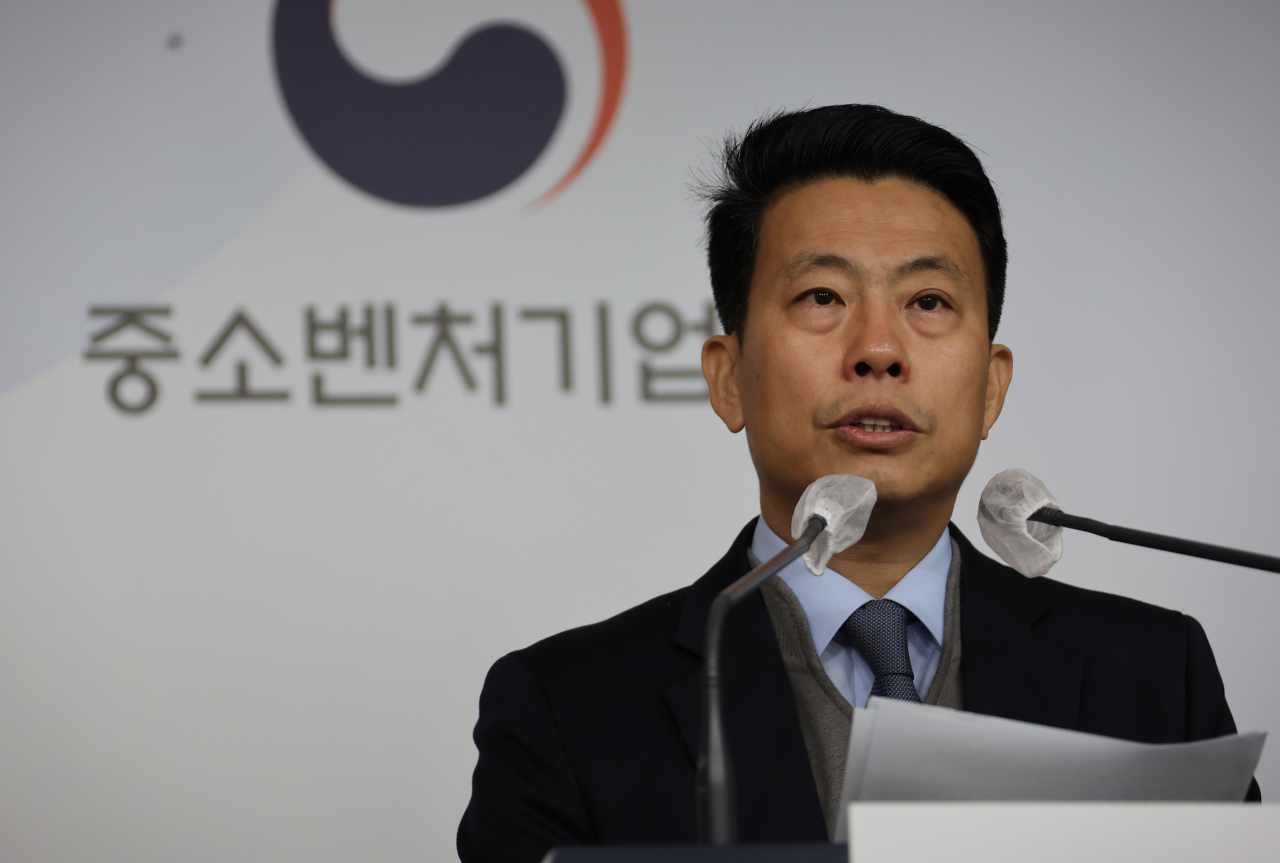S. Korean startups post record sales, buoyed by pandemic demands
By Lee Yoon-seoPublished : Nov. 21, 2022 - 16:48

The Ministry of SMEs and Startups said Monday that local startups saw record-breaking growth in diverse sectors as they work to meet the needs of consumers amid the pandemic.
According to the ministry, the number of startups whose sales exceeded 100 billion won ($73.8 million) was 739 companies as of end of 2021, a 16.7 percent increase from a year prior. Of the 739 startups, 569 logged 100 billion won in sales for two consecutive years.
A total of 108 companies reached 100 billion won in sales for the first time in 2021, a whopping 71.1 percent jump from the year prior.
The combined sales of the 739 startups were 188 trillion won in 2021, up 22.5 percent from 151 trillion won in 2020.
Their growth rate was 22.5 percent on average, higher than those of conglomerates at 15.5 percent and mid-sized companies at 15.8 percent.
The number of “gazelle-type startups,” the hallmark of growth for startups here, also saw the highest increase in 10 years, with a total of 48 companies being recognized in 2021.
Gazelle-type startups refer to startups that log more than 20 percent increase in sales for three consecutive years.
In 2021, the number of people hired by startups with more than 100 billion won in sales recorded 278,067, up 14.8 percent compared to 242,030 in 2020.
Of those surveyed, most (44,074) worked in computer, semiconductor, and electronic equipment-related startup industries.
Employees who worked in software development and IT-based service businesses followed suit, with 34,976 in count.
Startups saw growth in sales and numbers because certain startups had quickly conformed to the needs of consumers during the pandemic era and were able to digitize in a timely manner, said Lim Jung-wook, Deputy Minister at Office of Startup and Venture Innovation of the Ministry of Startups during the briefing.
“Out of many startups, companies that sold diagnostic reagents saw significant growth in sales and exports. At the same time, digital transformation took place, and startups such as Market Kurly and Baemin, who were able to respond quickly (to the trend), marked great increase in their sales,” said Lim.
“Also, during the last five years, South Korea’s investment in startups increased exponentially. Many of the IT companies that have received investment saw rapid increase in their revenues,” he added.
On a related note, on Nov. 4, the Ministry of Startups said that it plans on expanding its funding for venture capitals’ investment in startups to a total of 8 trillion won by 2026, to accelerate startups’ growth.
The government also said it would give an 8 percent tax credit and an exemption on the value-added tax to venture capitals and asset management firms that set up new funds dedicated to providing investments to startups.



![[AtoZ into Korean mind] Humor in Korea: Navigating the line between what's funny and not](http://res.heraldm.com/phpwas/restmb_idxmake.php?idx=644&simg=/content/image/2024/04/22/20240422050642_0.jpg&u=)


![[Exclusive] Korean military set to ban iPhones over 'security' concerns](http://res.heraldm.com/phpwas/restmb_idxmake.php?idx=644&simg=/content/image/2024/04/23/20240423050599_0.jpg&u=20240423183955)
![[Herald Interview] Why Toss invited hackers to penetrate its system](http://res.heraldm.com/phpwas/restmb_idxmake.php?idx=644&simg=/content/image/2024/04/22/20240422050569_0.jpg&u=20240422150649)
![[Graphic News] 77% of young Koreans still financially dependent](http://res.heraldm.com/phpwas/restmb_idxmake.php?idx=644&simg=/content/image/2024/04/22/20240422050762_0.gif&u=)







![[Exclusive] Korean military to ban iPhones over security issues](http://res.heraldm.com/phpwas/restmb_idxmake.php?idx=652&simg=/content/image/2024/04/23/20240423050599_0.jpg&u=20240423183955)



![[Today’s K-pop] Ateez confirms US tour details](http://res.heraldm.com/phpwas/restmb_idxmake.php?idx=642&simg=/content/image/2024/04/23/20240423050700_0.jpg&u=)